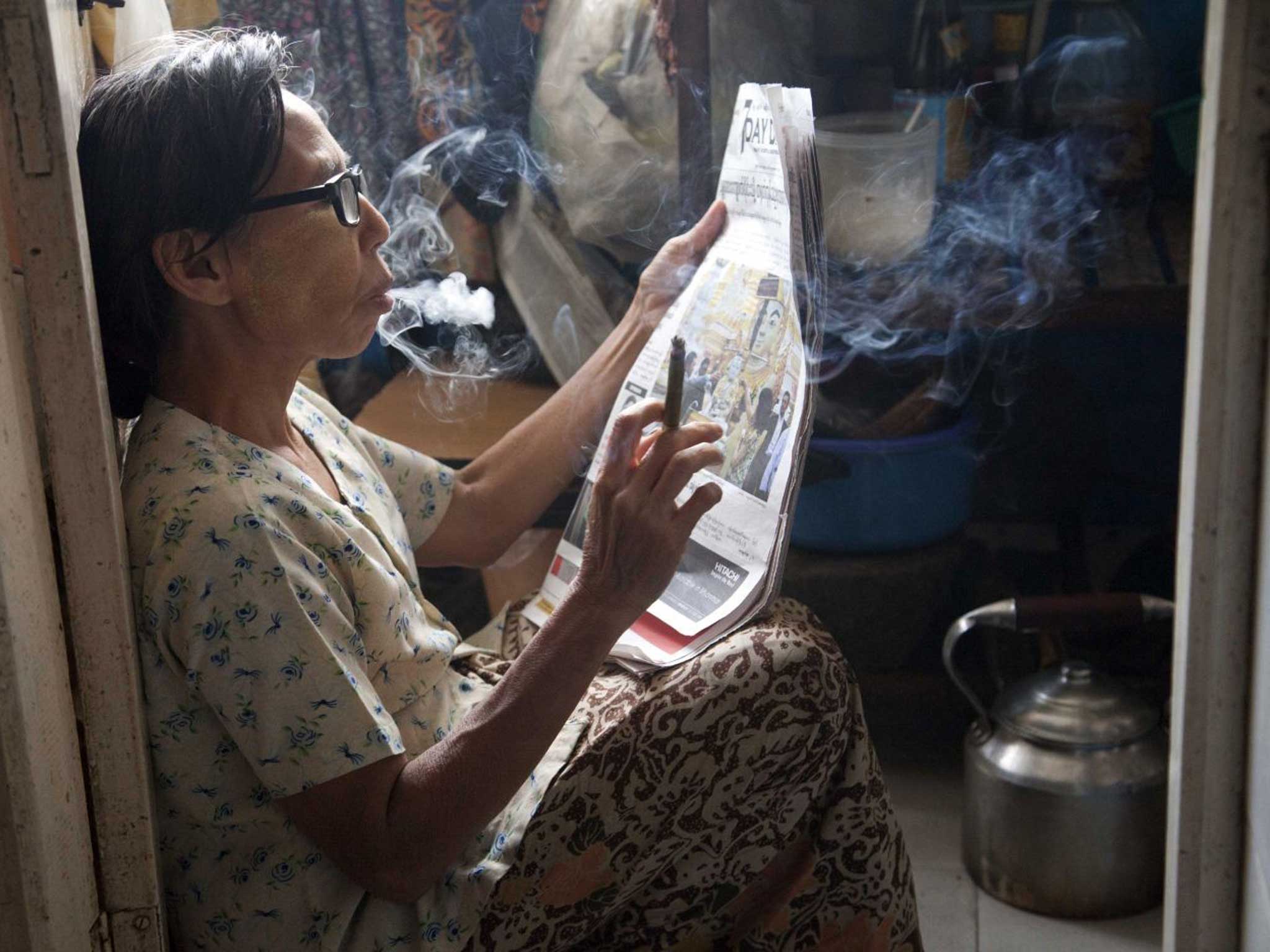Burma is still a deadly place for journalists
Letter from Asia: The killing of Aung Naing has sparked outcry, inside Burma and across the region


Your support helps us to tell the story
From reproductive rights to climate change to Big Tech, The Independent is on the ground when the story is developing. Whether it's investigating the financials of Elon Musk's pro-Trump PAC or producing our latest documentary, 'The A Word', which shines a light on the American women fighting for reproductive rights, we know how important it is to parse out the facts from the messaging.
At such a critical moment in US history, we need reporters on the ground. Your donation allows us to keep sending journalists to speak to both sides of the story.
The Independent is trusted by Americans across the entire political spectrum. And unlike many other quality news outlets, we choose not to lock Americans out of our reporting and analysis with paywalls. We believe quality journalism should be available to everyone, paid for by those who can afford it.
Your support makes all the difference.The journalist Aung Naing was shot dead by Burmese soldiers on 4 October but they did not admit to having killed him until three weeks later. When they did, few believed the soldiers’ explanation of the circumstances in which he had died.
Aung Naing, who was married and had a daughter, had been covering clashes between Burmese troops and ethnic rebels when he was detained by soldiers, supposedly on 30 September in southern Mon state. When he failed to return home, his wife raised the alarm and held a press conference in Rangoon.
The military was then forced to issue its statement, claiming the journalist had been killed after he tried to grab a soldier’s gun and run away. The military claimed the reporter was also, secretly, a member of an armed Karen rebel group and that he had admitted to this when being questioned. The soldiers finally said the journalist’s body had been buried at Shwe War Chong, a village outside the town of Kyaikmayaw.
The killing of Aung Naing has sparked outcry among journalists and activists, inside Burma and across the region. Press-freedom groups have called for a prompt investigation into the killing of the reporter, who worked for various Burmese publications including The Voice, Eleven Media and The Yangon Times.
“The killing of Aung Kyaw Naing by Burma’s military is reprehensible,” Shawn Crispin, of the Committee to Protect Journalists, said. “Civilian authorities must investigate the military’s accounting of his death, which has the initial hallmarks of a cover-up.”
For years, it was all but impossible to work as an independent journalist in Burma, which for more than four decades was controlled by various military regimes. Then, four years ago, as the junta decided to give way to a purportedly civilian administration and hold elections, journalists started to discover a freedom they had never before experienced.
They were able to cover the steady move towards democracy, the release of political prisoners and by-elections that saw Aung San Suu Kyi’s party become the second largest in parliament. Ministers made warm noises about the value of a free press.
But those freedoms are not unlimited and, as in plenty of other countries, journalists have found the greatest difficulties when reporting on sensitive issues involving politicians or the military.
Few things are more sensitive than the ongoing clashes with ethnic rebels, despite a supposed ceasefire. For journalists, there is an added danger in that such clashes are in remote places where the military often operates with impunity.
One Burmese journalist told me from Rangoon that over the past couple of years, reporters had been facing increasing problems as they investigated areas previously off limits.
“Two years ago, the government was not oppressing journalists like this. They were waiting to see what journalists would report on,” the reporter said. “Since the beginning of last year, journalists have been investigating more difficult things.”
The military has yet to explain why it took three weeks to reveal that Aung Naing had been killed or to offer any proof of its claim that he was a member of a rebel group. The rebels have said he was not a fighter but had written about them.
Aung Naing’s wife, Than Dar, told reporters a police officer had told her that her husband had been badly beaten while being held at a military base, operated by the Light Infantry Battalion 208. She told The Irrawaddy magazine she intended to bring charges.
“If he is dead, I want to get his body back,” she said. “I could not accept that he has died. I will continue fighting for justice. I don’t want any wives or daughters to suffer like we have suffered.”
Join our commenting forum
Join thought-provoking conversations, follow other Independent readers and see their replies
Comments